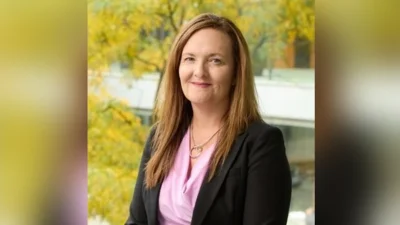Bluefield College issued the following announcement on Aug. 23
If you’re interested in learning more about faith but not sure what career paths might be open to you, you need to understand all you’ll learn in a Christian Studies program. Degrees in theology and Christian studies teach you much more than specific knowledge about the Bible and religion. There are skills you can develop that will easily transfer over into careers you may not have considered at all.
Theology degrees logically prepare you for work in a theological field. Here are some career paths that naturally align with a Christian studies degree:
- Minister: Lead worship, preside over weddings and funerals, provide spiritual guidance.
- Youth and Family Ministry: promote discipleship with youth and prepare youth for their transition to adulthood.
- Theology or religion professor: This would likely require an advanced degree but would be characterized by teaching religion or theological theory and interpretation at a college or university.
- Teacher at faith-based school: Teach younger students about God, religion, the Bible, and spirituality.
- Director of religious education: Oversee the operations and curriculum at a faith-based school.
- Para-Church Ministry: assist faith-based community organizations provide programming for children, youth, families, and other community needs.
- Missionary: Share the faith and provide aid to communities in need.
While there are plenty of faith-based jobs available, there are also many non-religious jobs you could get with a theology degree. Gaining transferable skills sets you up to be well-prepared to thrive in some of the following roles you may not have even considered yet. Each one of these fields involve a healthy amount of writing, critical thinking, or service—all of which are central to a degree in Christian studies.
- Teacher: After additional education and certification, teach students a specific subject in school.
- Social worker: Help people cope with a variety of issues in settings as diverse as schools, prisons, hospitals, or private practice.
- Ethicist: Become an expert in the regulations, practices, and procedures of a specific field and ensure others follow them.
- Nonprofit sector: Work in a variety of roles for a service-related company.
- Journalist or writer: Apply your communication skills to write for religious or secular print or online publications.
- Historian or Archivist: Research, curate, and categorize historical and religious artifacts and publications.
- Community development: Support communities through the management and operation of community assistance programs.
- Civil service: Work for the federal, state or local government in a variety of capacities.
What Will I Learn in a Christian Studies Major?
Studying theology involves a deep dive into many different religions, religious texts, and history—but that’s just the beginning. You’ll also gain knowledge in ethics, morality, philosophy, and literature. By the time you graduate, you will have gained a wide range of practical knowledge, skills, and expertise that are transferable to many different career paths.
- Analytical skills
- Applied theory
- Date analysis, synthesis, and interpretation
- Written and oral communication
- Debate
- Persuasion
- Presentation skills
- Problem solving
- Critical thinking
- Creativity
- Organization
- Independent and interpersonal work skills
Original source can be found here.


 Alerts Sign-up
Alerts Sign-up